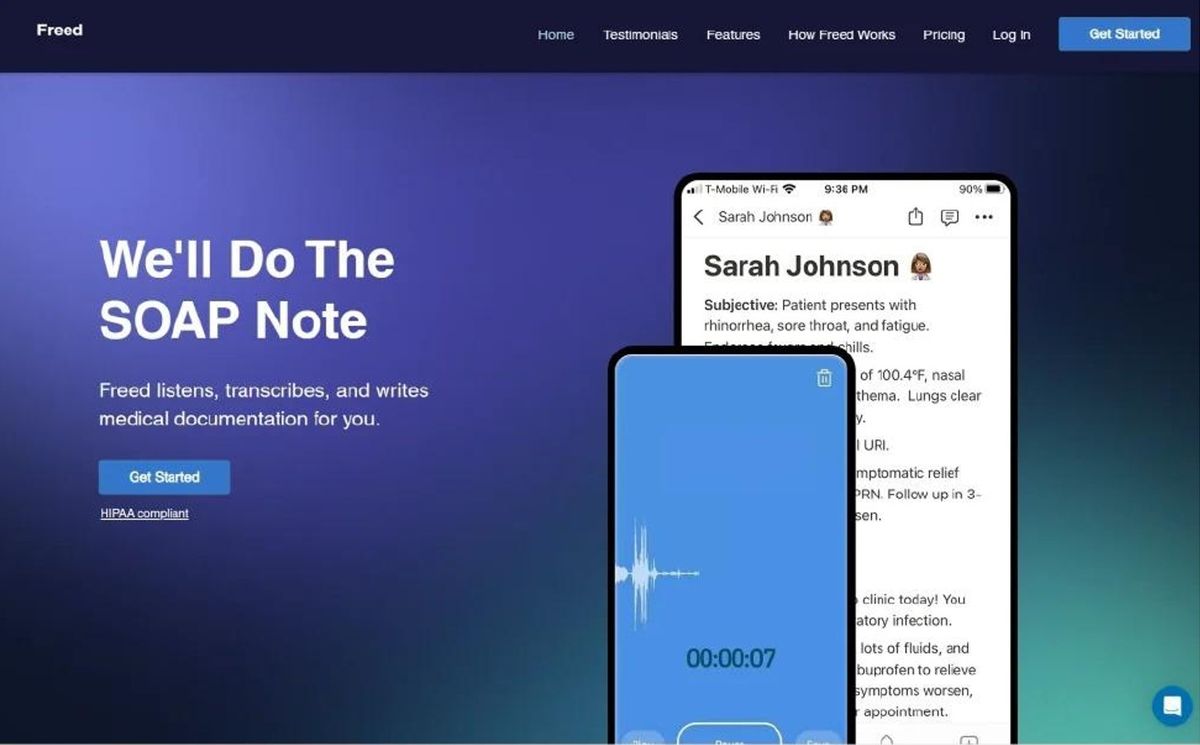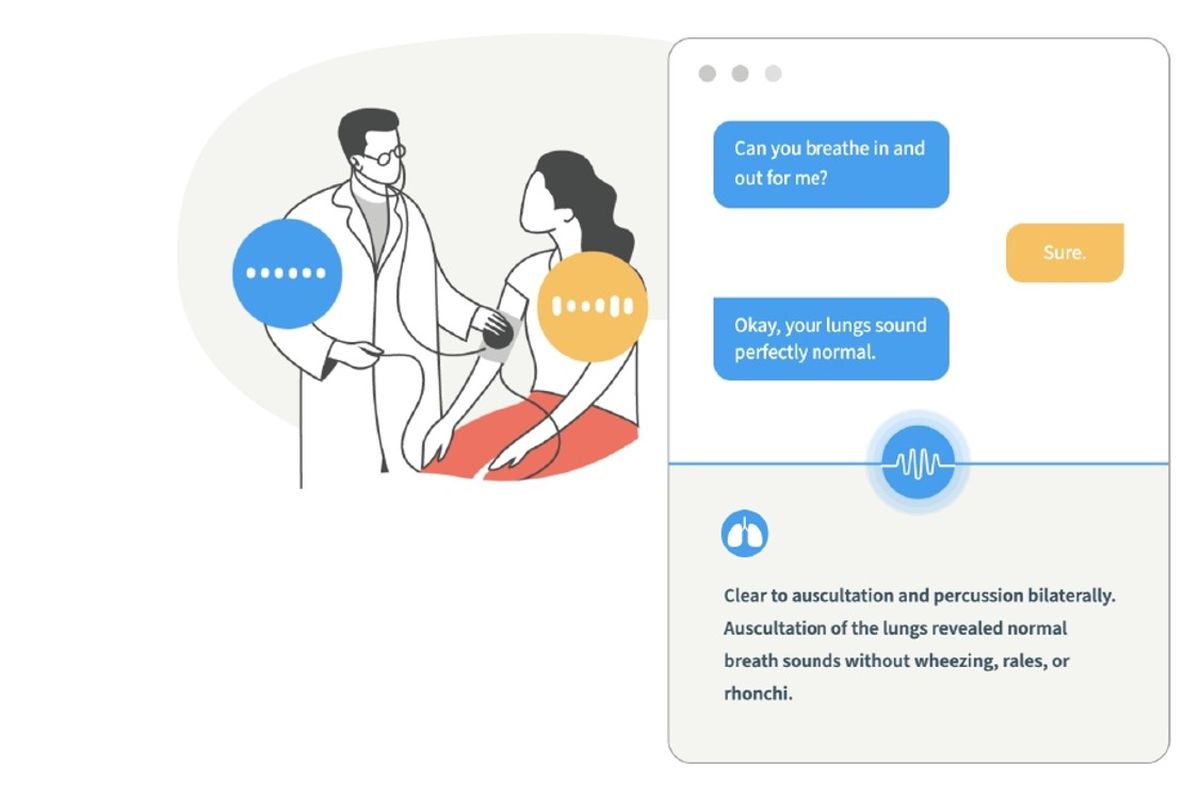In the ever-evolving landscape of healthcare, the integration of Artifcial Intelligence has signifcantly impacted various aspects of medical practice. One area where AI has made substantial strides is medical scribing, transforming the way healthcare professionals document patient encounters.
A medical AI scribe aims to enhance efciency, accuracy, and overall healthcare delivery. In this article, we will delve into the best 5 medical AI scribes that have garnered attention for their contributions to streamlining medical documentation processes in healthcare.
1. Freed
Freed confdently secures the top position on our list, as a leading HIPAA-compliant AI medical charting tool for clinicians. During patient visits, Freed listens attentively to your dialogue and transcribes it accurately. Its sophisticated AI algorithm then discerns essential medical details, crafting organized SOAP notes – much like a scribe, but without a need for special training. These notes, refecting your writing style, are promptly available post-visit.
 Adhering to medical guidelines and best practices, Freed allows you to review, edit, and seamlessly transfer your SOAP notes into your EHR system. What sets Freed apart is its AI capability to learn your writing style, accurately transcribe spoken words, and even emulate your writing style based on provided examples.
Adhering to medical guidelines and best practices, Freed allows you to review, edit, and seamlessly transfer your SOAP notes into your EHR system. What sets Freed apart is its AI capability to learn your writing style, accurately transcribe spoken words, and even emulate your writing style based on provided examples.
Moreover, Freed prioritizes privacy and security, strictly adhering to regulations for safeguarding patient information. Notably, it refrains from retaining any patient recordings, ensuring a comprehensive and secure solution for healthcare documentation.
2. Dragon Medical One by Nuance Communications
 It is a medical AI scribe known for its advanced voice recognition technology. It simplifes clinical documentation by effortlessly translating spoken words into precise and comprehensive patient notes. The tool’s seamless integration with electronic health record systems enhances workfow efciency, making it a preferred choice for healthcare professionals seeking a reliable and user-friendly solution.
It is a medical AI scribe known for its advanced voice recognition technology. It simplifes clinical documentation by effortlessly translating spoken words into precise and comprehensive patient notes. The tool’s seamless integration with electronic health record systems enhances workfow efciency, making it a preferred choice for healthcare professionals seeking a reliable and user-friendly solution.
Beyond basic dictation, Dragon Medical One stands out for its ability to understand medical terminology and context, minimizing the risk of errors in patient records. Its cloud-based architecture adds fexibility, allowing healthcare professionals to access and utilize the tool from various devices and locations.
3. DeepScribe
It is an advanced medical AI scribe that transforms patient-doctor interactions into accurate transcriptions using AI and machine learning. It seamlessly integrates into existing workfows, reducing the manual burden of note-taking and enhancing clinical documentation efciency for healthcare professionals.
With a focus on adaptability and accuracy, DeepScribe offers a user-friendly solution to streamline and improve documentation processes in healthcare.
4. Suki AI

Suki AI is tailored specifcally for healthcare providers, offering a voice-enabled digital assistant to assist in documentation. This AI scribe utilizes machine learning algorithms to understand and capture the nuances of medical conversations, allowing physicians to create detailed clinical notes with minimal effort.
Suki AI’s adaptability and user-friendly interface make it a valuable tool for improving overall workfow efciency.
5. Tali AI
 Physicians leveraging Tali can streamline their workfow by dictating notes directly into the Electronic Medical Record (EMR) software. The virtual assistant is equipped to address inquiries about medication dosages and provide quick access to a patient’s comprehensive medical history. This functionality not only enhances the efciency of patient management but also refects Tali AI’s commitment to advancing the interface between healthcare professionals and digital documentation systems.
Physicians leveraging Tali can streamline their workfow by dictating notes directly into the Electronic Medical Record (EMR) software. The virtual assistant is equipped to address inquiries about medication dosages and provide quick access to a patient’s comprehensive medical history. This functionality not only enhances the efciency of patient management but also refects Tali AI’s commitment to advancing the interface between healthcare professionals and digital documentation systems.
Featured image credit: National Cancer Institute/Unsplash





